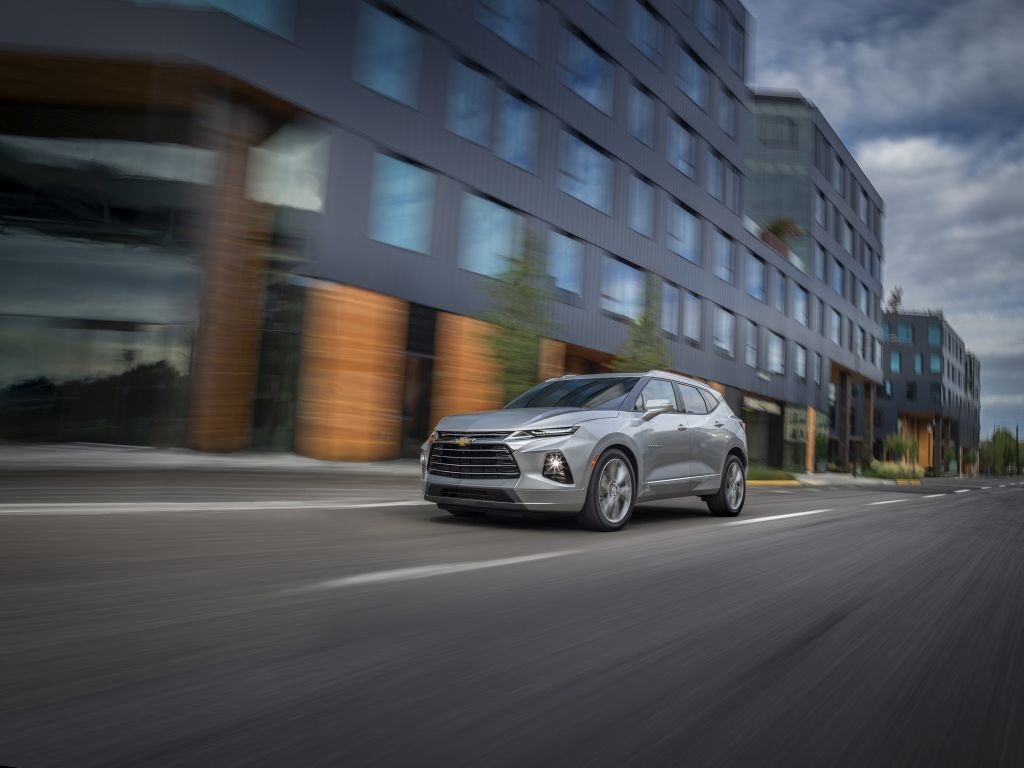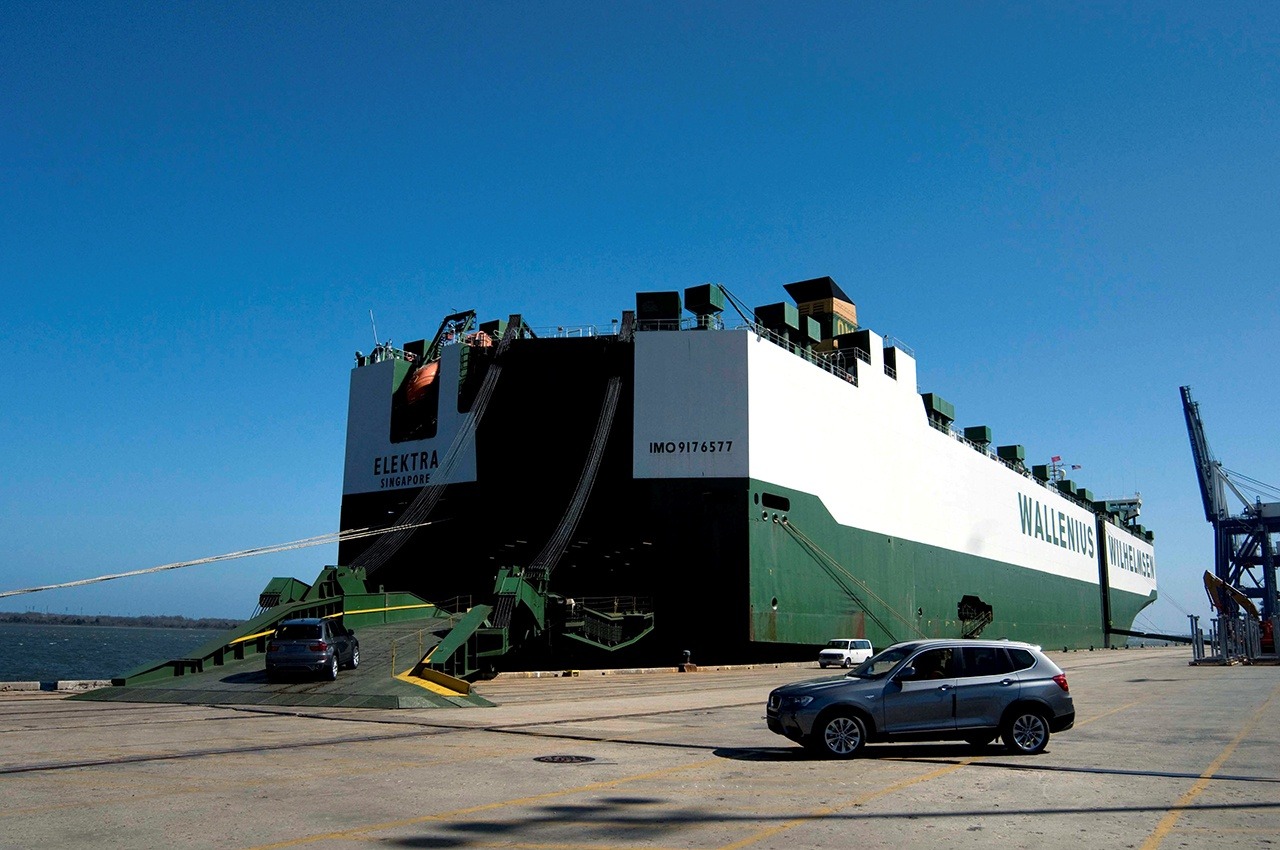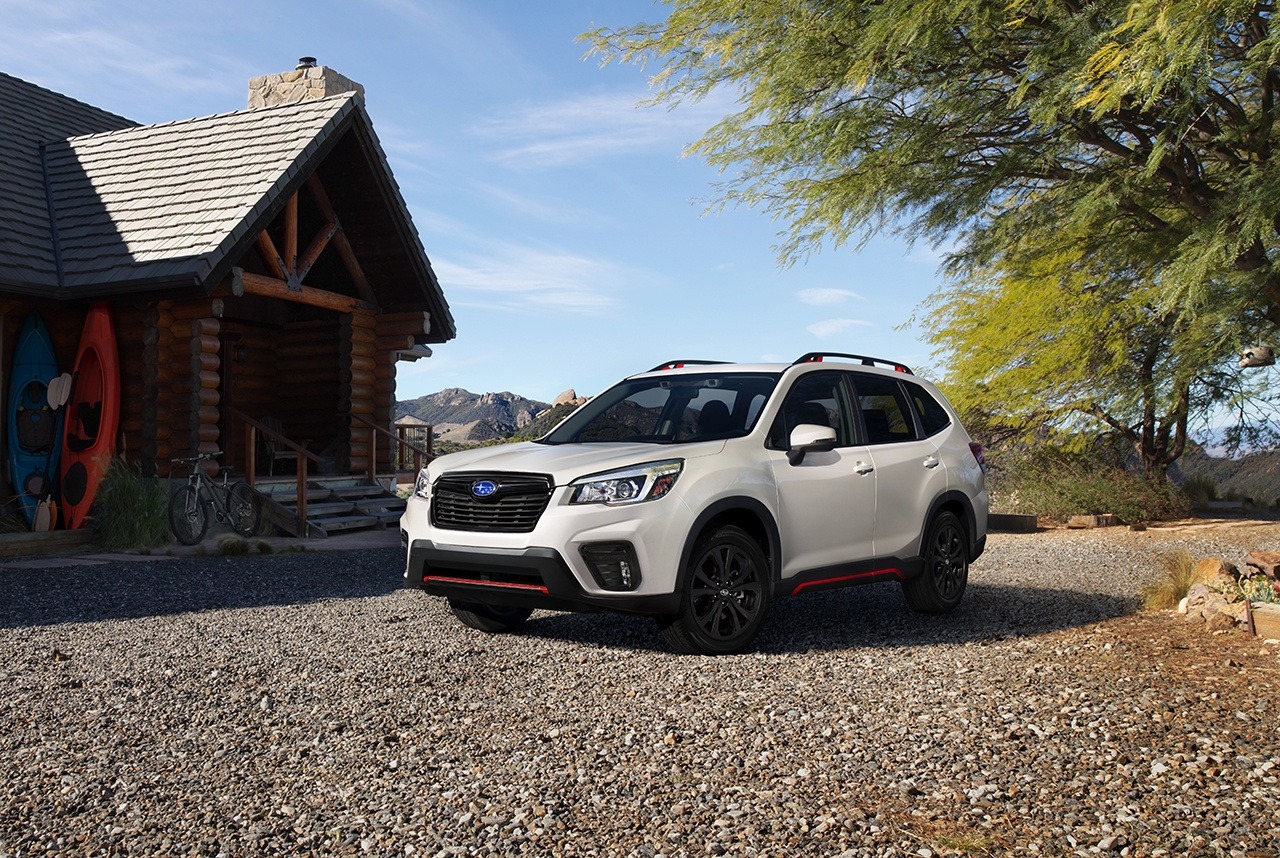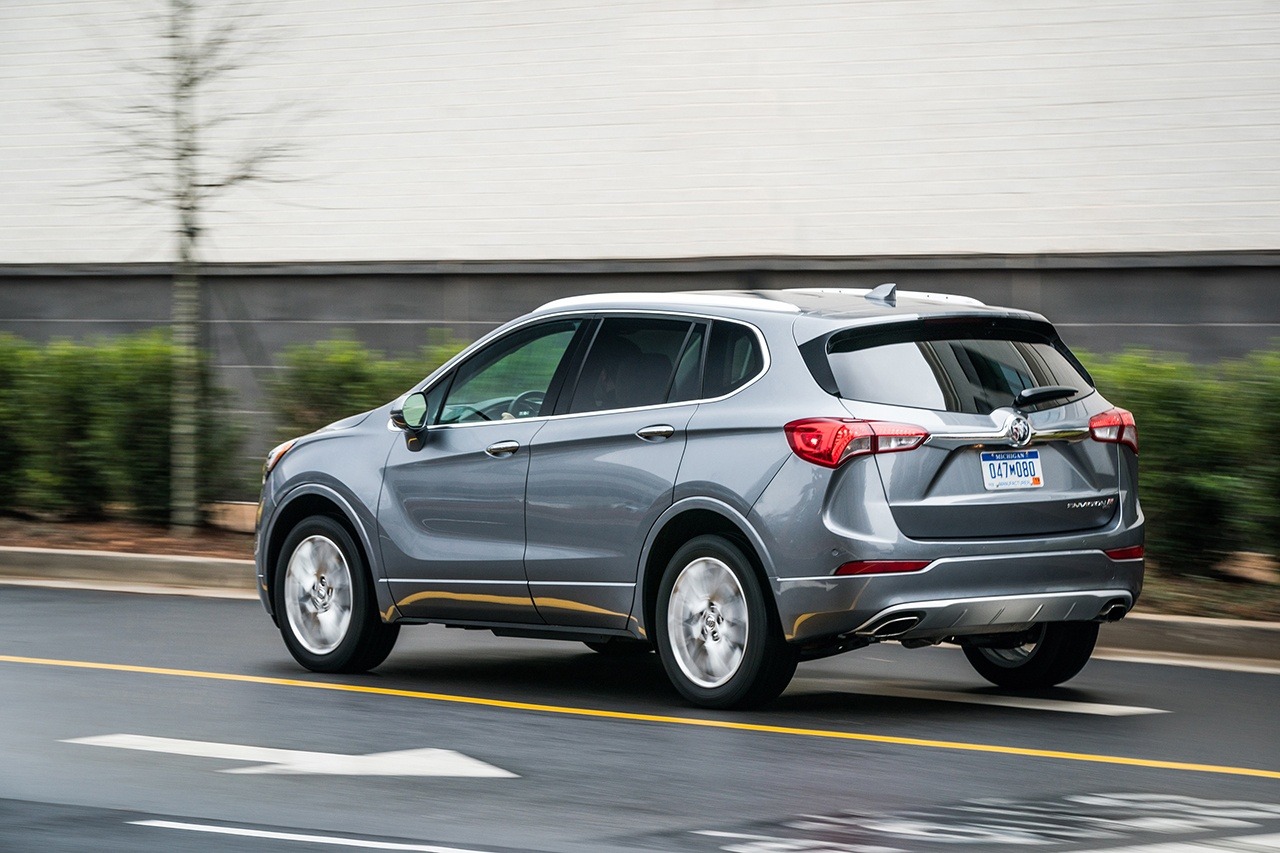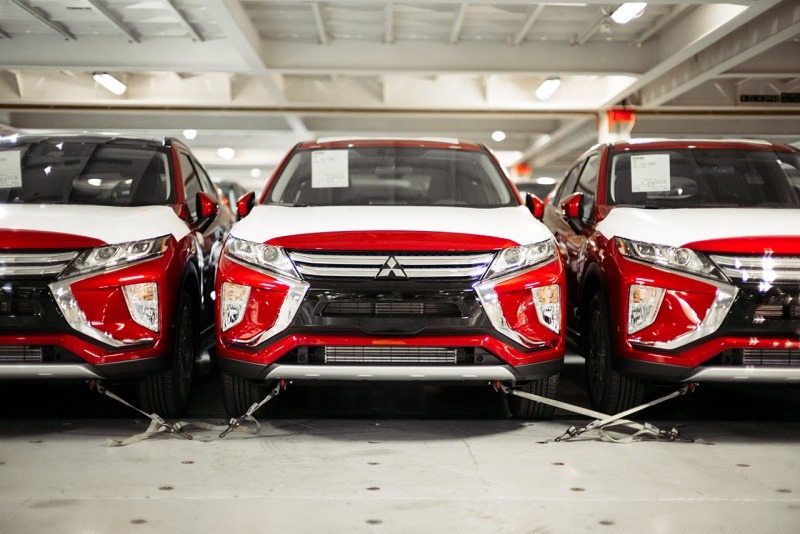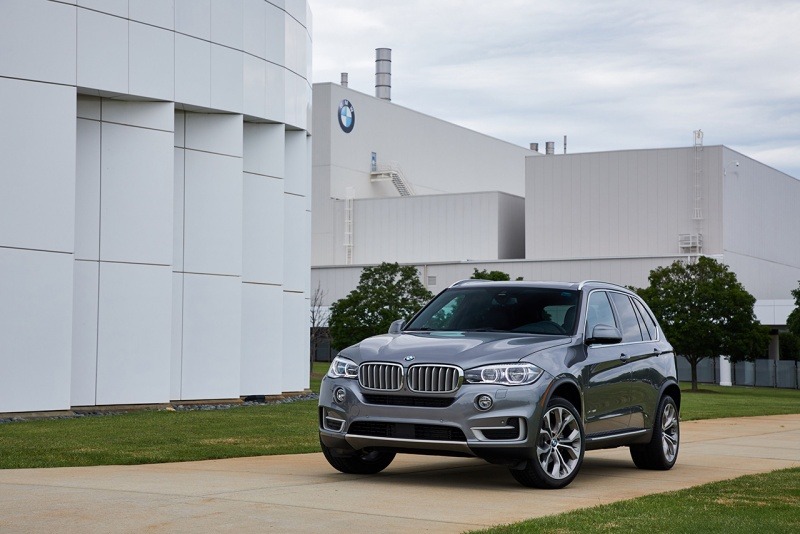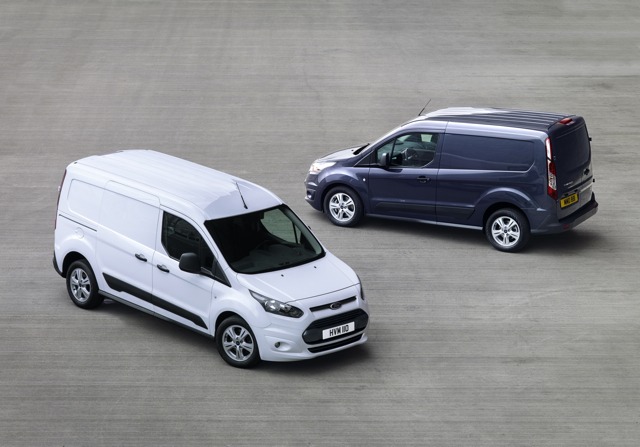Search the Community
Showing results for tags 'tariff'.
-
Not content with a trade war just with China, Donald Trump has opened a second front in what is slowly turning into a trade world war. Yesterday evening, Trump announced that beginning June 10th a 5% tariff would be slapped on all Mexican products coming into the country. That tariff would increase to 10% by July 1st and then go to its 25% maximum in October. For automakers with razor thin margins, there is absolute certainty that the American consumer will end up paying these tariffs. The White House said in a statement: Goods from Mexico account for 13.6 percent of all imported goods to the U.S, totaling about $346.5 billion. Automobiles and their components are high on the list of goods that are imported from Mexico. Further complicating matters is that components can move over the border up to 20 times before reaching their final assembly location. General Motors and other domestic manufacturers are going to be hit especially hard. GM imported 811,000 vehicles from Mexico last year. One of their recent vehicles, the Chevrolet Blazer, caused a stir for being Mexican built when it was put on display at Comerica Park in Detroit at a time when GM was closing five U.S. manufacturing facilities. General Motors eventually took the display down and replaced it with a US built Traverse. Stocks fell sharply Friday morning in response to the tariff announcement.
-
Not content with a trade war just with China, Donald Trump has opened a second front in what is slowly turning into a trade world war. Yesterday evening, Trump announced that beginning June 10th a 5% tariff would be slapped on all Mexican products coming into the country. That tariff would increase to 10% by July 1st and then go to its 25% maximum in October. For automakers with razor thin margins, there is absolute certainty that the American consumer will end up paying these tariffs. The White House said in a statement: Goods from Mexico account for 13.6 percent of all imported goods to the U.S, totaling about $346.5 billion. Automobiles and their components are high on the list of goods that are imported from Mexico. Further complicating matters is that components can move over the border up to 20 times before reaching their final assembly location. General Motors and other domestic manufacturers are going to be hit especially hard. GM imported 811,000 vehicles from Mexico last year. One of their recent vehicles, the Chevrolet Blazer, caused a stir for being Mexican built when it was put on display at Comerica Park in Detroit at a time when GM was closing five U.S. manufacturing facilities. General Motors eventually took the display down and replaced it with a US built Traverse. Stocks fell sharply Friday morning in response to the tariff announcement. View full article
-
The President has threatened to slap tariffs on the import of all cars in a year if Mexico does not completely halt the flow of illegal immigration, a near impossible task. This is after he backtracked on his previous threat to completely close the US-Mexico border, a move his own advisers recommended against. Such actions would have massive economic repercussions on both sides of the border, raising prices for many consumer goods. Trump said, "Mexico understands that we're going to close the border or I'm going to tariff the cars. I'll do one or the other. And probably start with the tariffs". He further added, "I don't think we'll ever have to close the border because the penalty of tariffs on cars coming into the United States from Mexico, at 25%, will be massive". One problem with this threat is the fresh trade agreement with Mexico that Trump has already negotiated. Going back on a fresh trade agreement adds to the longtime concerns by other world leaders on whether Trump's word, and the U.S. Government, can be trusted. Tariffs on imported goods aren't paid by the exporting country, they are paid by the consumers of the importing country, so it is unclear who Trump is targeting with these tariffs. One of the biggest automotive importers from Mexico is General Motors. GM recently had to remove a Chevrolet Blazer display from a stadium in Michigan after backlash over its Mexican origin. GM has recently closed two plants in Michigan costing the state thousands of jobs.
-

Industry News: Trump Threatens Mexico with Auto Tariffs
Drew Dowdell posted a topic in Industry News
The President has threatened to slap tariffs on the import of all cars in a year if Mexico does not completely halt the flow of illegal immigration, a near impossible task. This is after he backtracked on his previous threat to completely close the US-Mexico border, a move his own advisers recommended against. Such actions would have massive economic repercussions on both sides of the border, raising prices for many consumer goods. Trump said, "Mexico understands that we're going to close the border or I'm going to tariff the cars. I'll do one or the other. And probably start with the tariffs". He further added, "I don't think we'll ever have to close the border because the penalty of tariffs on cars coming into the United States from Mexico, at 25%, will be massive". One problem with this threat is the fresh trade agreement with Mexico that Trump has already negotiated. Going back on a fresh trade agreement adds to the longtime concerns by other world leaders on whether Trump's word, and the U.S. Government, can be trusted. Tariffs on imported goods aren't paid by the exporting country, they are paid by the consumers of the importing country, so it is unclear who Trump is targeting with these tariffs. One of the biggest automotive importers from Mexico is General Motors. GM recently had to remove a Chevrolet Blazer display from a stadium in Michigan after backlash over its Mexican origin. GM has recently closed two plants in Michigan costing the state thousands of jobs. View full article -
China has announced today that it would be reducing tariffs on U.S.-built cars and car parts from 40 to 15 percent beginning on January 1st. This reduction will last for three months as the U.S. and China begin hashing out a new trade deal. We first reported the reduction of the tariffs earlier this week. China's Ministry of Finance posted on their website said it hopes the talks between the two can go quickly and remove "all additional tariffs on each other’s goods" that were brought forth before the current trade-war. “China just announced that their economy is growing much slower than anticipated because of our Trade War with them. They have just suspended U.S. Tariff Hikes. U.S. is doing very well. China wants to make a big and very comprehensive deal. It could happen, and rather soon!” President Donald Trump wrote on Twitter in response to the announcement. China raised the tariffs on U.S.-built vehicles and parts back in July in response to the U.S. raised tariffs on Chinese-built vehicles and parts to 27.5 percent. The move caused a number of headaches for automakers which had to increase prices on models sold in China or change up various plans. Various automakers and groups welcomed the news. At the moment, the U.S. hasn't announced any plans to reduce the 27.5 percent tariff on Chinese-built vehicles and parts. Source: Associated Press, Reuters
-
China has announced today that it would be reducing tariffs on U.S.-built cars and car parts from 40 to 15 percent beginning on January 1st. This reduction will last for three months as the U.S. and China begin hashing out a new trade deal. We first reported the reduction of the tariffs earlier this week. China's Ministry of Finance posted on their website said it hopes the talks between the two can go quickly and remove "all additional tariffs on each other’s goods" that were brought forth before the current trade-war. “China just announced that their economy is growing much slower than anticipated because of our Trade War with them. They have just suspended U.S. Tariff Hikes. U.S. is doing very well. China wants to make a big and very comprehensive deal. It could happen, and rather soon!” President Donald Trump wrote on Twitter in response to the announcement. China raised the tariffs on U.S.-built vehicles and parts back in July in response to the U.S. raised tariffs on Chinese-built vehicles and parts to 27.5 percent. The move caused a number of headaches for automakers which had to increase prices on models sold in China or change up various plans. Various automakers and groups welcomed the news. At the moment, the U.S. hasn't announced any plans to reduce the 27.5 percent tariff on Chinese-built vehicles and parts. Source: Associated Press, Reuters View full article
-
While the Trump administration is still deciding whether or not to put tariffs on imported vehicles, certain automakers are bracing for the worst. During a briefing in Tokyo, Subaru is predicting a "big impact" if the U.S. does put tariffs into place. “It’s a fact that there would be a big impact from a U.S. tariff increase. We’re studying what the impact might be but there are too many unknowns at this point, so we want to refrain from giving a specific figure,” said Toshiaki Okada, Subaru's Chief Financial Officer. Of the 670,900 vehicles it sold in the U.S. through the year that ended in March, about half were imported, including the Forester. The rest of the vehicles - Legacy, Outback, and Ascent - are built in Indiana. According to data gathered by Bloomberg, Subaru would be the hardest hit by tariffs as over 67 percent of their revenues from North America. This is more than Honda (52.5 percent), Nissan (48.9 percent), and Toyota (35.2 percent). Source: Bloomberg View full article
-
While the Trump administration is still deciding whether or not to put tariffs on imported vehicles, certain automakers are bracing for the worst. During a briefing in Tokyo, Subaru is predicting a "big impact" if the U.S. does put tariffs into place. “It’s a fact that there would be a big impact from a U.S. tariff increase. We’re studying what the impact might be but there are too many unknowns at this point, so we want to refrain from giving a specific figure,” said Toshiaki Okada, Subaru's Chief Financial Officer. Of the 670,900 vehicles it sold in the U.S. through the year that ended in March, about half were imported, including the Forester. The rest of the vehicles - Legacy, Outback, and Ascent - are built in Indiana. According to data gathered by Bloomberg, Subaru would be the hardest hit by tariffs as over 67 percent of their revenues from North America. This is more than Honda (52.5 percent), Nissan (48.9 percent), and Toyota (35.2 percent). Source: Bloomberg
-
The Buick Envision finds itself in a tough spot. General Motors has been exporting the model to the U.S. since 2016. But with the on-going trade-war between the U.S. and China, it means the Envision could smacked with a 25% percent tariff. That is why GM is asking for exemption on the model. In a statement provided to Reuters, GM said that it filed the exemption request on July 30th to the U.S. Trade Representative. In the request, GM makes some sound arguments as to why the Envision should be excluded. Price is major factor. If the vehicle is hit with a 25 percent tariff, GM would be forced to pull it from the U.S. unless it wants to a take serious loss on each model. Why not build it here? The Envision has been a target of critics of Chinese-made goods, including leaders of UAW. GM explains that the sales volume of the Envision doesn't justify moving it to the U.S. Last year, Buick only sold 41,040 Envisions in the U.S. In China, Buick moved about 210,000 models. In addition, the current Envision is reaching the end of its current lifecycle before the company could make the preparations to build the model here. GM also makes the argument that the loss of the Envision would put them in a distinct disadvantage against foreign competitors such as Acura and Volvo. You can check out GM's request on regulations.gov website, which is tracking requests for exclusions from the Section 301 tariff. If the Envision does get hit with a 25 percent tariff, GM has already taken some steps to relieve some of the pain. Before the higher import tariffs went into affect, GM shipped in a six-month supply of Envisions that would be hit with the much smaller 2.5 percent tariff. This should keep dealers happy in terms of stock and not having to deal with a higher price. Source: Reuters, Regulations.gov View full article
- 71 replies
-
- buick
- buick envision
-
(and 5 more)
Tagged with:
-

GM Seeks An Exemption To Exclude Buick Envision from Tariffs
William Maley posted an article in Buick
The Buick Envision finds itself in a tough spot. General Motors has been exporting the model to the U.S. since 2016. But with the on-going trade-war between the U.S. and China, it means the Envision could smacked with a 25% percent tariff. That is why GM is asking for exemption on the model. In a statement provided to Reuters, GM said that it filed the exemption request on July 30th to the U.S. Trade Representative. In the request, GM makes some sound arguments as to why the Envision should be excluded. Price is major factor. If the vehicle is hit with a 25 percent tariff, GM would be forced to pull it from the U.S. unless it wants to a take serious loss on each model. Why not build it here? The Envision has been a target of critics of Chinese-made goods, including leaders of UAW. GM explains that the sales volume of the Envision doesn't justify moving it to the U.S. Last year, Buick only sold 41,040 Envisions in the U.S. In China, Buick moved about 210,000 models. In addition, the current Envision is reaching the end of its current lifecycle before the company could make the preparations to build the model here. GM also makes the argument that the loss of the Envision would put them in a distinct disadvantage against foreign competitors such as Acura and Volvo. You can check out GM's request on regulations.gov website, which is tracking requests for exclusions from the Section 301 tariff. If the Envision does get hit with a 25 percent tariff, GM has already taken some steps to relieve some of the pain. Before the higher import tariffs went into affect, GM shipped in a six-month supply of Envisions that would be hit with the much smaller 2.5 percent tariff. This should keep dealers happy in terms of stock and not having to deal with a higher price. Source: Reuters, Regulations.gov- 71 comments
-
- buick
- buick envision
-
(and 5 more)
Tagged with:
-
Automakers have been edge for a few months with talk of a trade war and possibly putting up to a 25 percent tariff on imported new vehicles. They only would be pushed further to the edge as President Donald Trump tweeted last week a 20 percent import tariff on all cars assembled in the European Union. Now, automakers are rebuking the President over this. Reuters reports today that two trade groups, representing nearly every major global automotive brands have issued comments saying the president shouldn't go forward with tariff. The two groups in question are the Association of Global Automakers (represents Honda, Hyundai, Kia, Nissan, Subaru, Toyota, and others) and Alliance of Automobile Manufacturers (represents General Motors, Ford, FCA, BMW, and others). The primary concerned brought up by both groups? Jobs. “Rather than creating jobs, these tariffs would result in the loss of hundreds of thousands of American jobs producing and selling cars, SUVs, trucks and auto parts,” said the Association of Global Automakers. Both groups cite a study done by the Peterson Institute for International Economics which estimates job losses between 195,000 to 624,000 depending if other countries retaliate with their own tariffs. Next up is the increased cost on a new vehicle. The Alliance of Automobile Manufacturers says a consumer could expect to pay an average of $5,800 more on a new car. This number is based on analysis of 2017 sales data and factoring in a 25 percent tariff. New cars are already expensive - Kelly Blue Book said the average transaction price for May stood at $35,635. The final concern brought up deals with a decrease in investments into new technologies such as electrification and autonomous vehicles. “We are already in the midst of an intense global race to lead on electrification and automation. The increased costs associated with the proposed tariffs may result in diminishing the U.S.’ competitiveness in developing these advanced technologies,” said the Alliance. The U.S. Commerce Department which is investigating new car imports on the national security has said that it hopes to wrap up their investigation either next month or August. Source: Reuters View full article
- 14 replies
-
- automakers
- rebuke
-
(and 1 more)
Tagged with:
-
Automakers have been edge for a few months with talk of a trade war and possibly putting up to a 25 percent tariff on imported new vehicles. They only would be pushed further to the edge as President Donald Trump tweeted last week a 20 percent import tariff on all cars assembled in the European Union. Now, automakers are rebuking the President over this. Reuters reports today that two trade groups, representing nearly every major global automotive brands have issued comments saying the president shouldn't go forward with tariff. The two groups in question are the Association of Global Automakers (represents Honda, Hyundai, Kia, Nissan, Subaru, Toyota, and others) and Alliance of Automobile Manufacturers (represents General Motors, Ford, FCA, BMW, and others). The primary concerned brought up by both groups? Jobs. “Rather than creating jobs, these tariffs would result in the loss of hundreds of thousands of American jobs producing and selling cars, SUVs, trucks and auto parts,” said the Association of Global Automakers. Both groups cite a study done by the Peterson Institute for International Economics which estimates job losses between 195,000 to 624,000 depending if other countries retaliate with their own tariffs. Next up is the increased cost on a new vehicle. The Alliance of Automobile Manufacturers says a consumer could expect to pay an average of $5,800 more on a new car. This number is based on analysis of 2017 sales data and factoring in a 25 percent tariff. New cars are already expensive - Kelly Blue Book said the average transaction price for May stood at $35,635. The final concern brought up deals with a decrease in investments into new technologies such as electrification and autonomous vehicles. “We are already in the midst of an intense global race to lead on electrification and automation. The increased costs associated with the proposed tariffs may result in diminishing the U.S.’ competitiveness in developing these advanced technologies,” said the Alliance. The U.S. Commerce Department which is investigating new car imports on the national security has said that it hopes to wrap up their investigation either next month or August. Source: Reuters
- 14 comments
-
- automakers
- rebuke
-
(and 1 more)
Tagged with:
-
With President Donald Trump tweeting last Friday threating a 20 percent tariff on all imports of European Union assembled cars, the EU has responded by saying it would raise their tariffs on imports of U.S.-built vehicles. “If they decide to raise their import tariffs, we’ll have no choice, again, but to react,” said EU Commission Vice President Jyrki Katainen. “We don’t want to fight (over trade) in public via Twitter. We should end the escalation.” This comes a month after the Trump administration announced an investigation into new car imports on the grounds of national security. U.S. Commerce Secretary Wilbur Ross said late last week the department is expected to wrap up their investigation by late July or August. A number of groups have condemned the investigation and threat of tariffs, one saying that it is “confident that vehicle imports do not pose a national security risk.” Diamler AG announced last week full-year earnings will be slightly lower than last year because of the threat of tariffs. Source: Reuters View full article
- 4 replies
-
- eu
- european union
-
(and 2 more)
Tagged with:
-

European Union Ready To Respond To Any U.S. Tariff On Cars
William Maley posted an article in Automotive Industry
With President Donald Trump tweeting last Friday threating a 20 percent tariff on all imports of European Union assembled cars, the EU has responded by saying it would raise their tariffs on imports of U.S.-built vehicles. “If they decide to raise their import tariffs, we’ll have no choice, again, but to react,” said EU Commission Vice President Jyrki Katainen. “We don’t want to fight (over trade) in public via Twitter. We should end the escalation.” This comes a month after the Trump administration announced an investigation into new car imports on the grounds of national security. U.S. Commerce Secretary Wilbur Ross said late last week the department is expected to wrap up their investigation by late July or August. A number of groups have condemned the investigation and threat of tariffs, one saying that it is “confident that vehicle imports do not pose a national security risk.” Diamler AG announced last week full-year earnings will be slightly lower than last year because of the threat of tariffs. Source: Reuters- 4 comments
-
- eu
- european union
-
(and 2 more)
Tagged with:
-
William Maley Staff Writer - CheersandGears.com August 8, 2013 The Chicken Tax, a fifty year-old tariff put in place to tax 25 percent on all imported trucks could be gone in the near future. The U.S. is currently in talks currently in negotiations with the the Trans-Pacific Partnership over free-trade agreements. One of the countries in the Trans-Pacific Partnership is Japan, a country that currently imposes strict restrictions on U.S. imports. The U.S. is using the elimination of the Chicken Tax as bargaining chip in the negotiations to hopefully open up and let domestic automakers come in. “The automakers see it as some leverage to getting other countries to open up their markets. The tariff doesn’t seem to make any sense now, particularly since the industry has globalized, or at least regionalized, but this is what happens with transfer programs, with protectionism, with social safety nets," said Daniel Ikenson, director of the Cato Institute’s Herbert A. Stiefel Center for Trade Policy Studies. Cases in point: Honda, Nissan, and Toyota build their trucks in U.S. Ford and for a time Chrysler used a loophole in the Chicken Tax to bring their vans into U.S. The Chicken Tax has also hurt automakers. For example, MINI pulled the Clubvan in the U.S. partly due to the Chicken Tax. If the U.S. is not successful in their negotiations, the Chicken Tax could stay on the books for another 25 to 30 years. Source: The Detroit News William Maley is a staff writer for Cheers & Gears. He can be reached at [email protected] or you can follow him on twitter at @realmudmonster.
- 8 comments
-
- Chicken Tax
- Pickup Trucks
-
(and 2 more)
Tagged with:
-
William Maley Staff Writer - CheersandGears.com August 8, 2013 The Chicken Tax, a fifty year-old tariff put in place to tax 25 percent on all imported trucks could be gone in the near future. The U.S. is currently in talks currently in negotiations with the the Trans-Pacific Partnership over free-trade agreements. One of the countries in the Trans-Pacific Partnership is Japan, a country that currently imposes strict restrictions on U.S. imports. The U.S. is using the elimination of the Chicken Tax as bargaining chip in the negotiations to hopefully open up and let domestic automakers come in. “The automakers see it as some leverage to getting other countries to open up their markets. The tariff doesn’t seem to make any sense now, particularly since the industry has globalized, or at least regionalized, but this is what happens with transfer programs, with protectionism, with social safety nets," said Daniel Ikenson, director of the Cato Institute’s Herbert A. Stiefel Center for Trade Policy Studies. Cases in point: Honda, Nissan, and Toyota build their trucks in U.S. Ford and for a time Chrysler used a loophole in the Chicken Tax to bring their vans into U.S. The Chicken Tax has also hurt automakers. For example, MINI pulled the Clubvan in the U.S. partly due to the Chicken Tax. If the U.S. is not successful in their negotiations, the Chicken Tax could stay on the books for another 25 to 30 years. Source: The Detroit News William Maley is a staff writer for Cheers & Gears. He can be reached at [email protected] or you can follow him on twitter at @realmudmonster. View full article
- 8 replies
-
- Chicken Tax
- Pickup Trucks
-
(and 2 more)
Tagged with:


